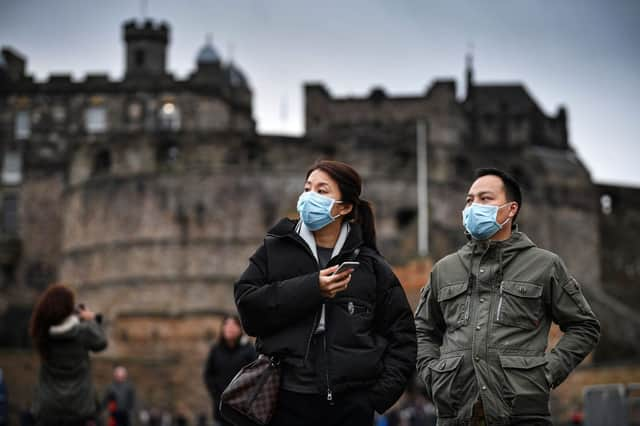Here's why you shouldn't travel during the coronavirus pandemic, even within the UK


Leaders in rural England, Wales and Scotland are calling on the government for help to stem a flood of people travelling from cities amid the impending threat of coronavirus.
Many are seeking an escape from urban coronavirus hotspots by heading to stay at holiday homes or with relatives, and the exodus has led to fears that more people could get sick in rural areas and potentially overwhelm local health service.
Advertisement
Hide AdAdvertisement
Hide AdThe Scottish government's rural economy and tourism secretary Fergus Ewing, said: "I am furious at the reckless and irresponsible behaviour of some people travelling to the Highland and Islands. This has to stop now.
"Let me be crystal clear, people should not be travelling to rural and island communities, full stop. They are endangering lives. Do not travel.
"Panic buying will have a devastating impact on the livelihoods of rural shops and potentially puts unwanted pressure on NHS services in our rural communities."
Despite calls for a nationwide lockdown and social distancing, beaches and beauty sports in Brighton, Cornwall, Devon, East Yorkshire and West Sussex all saw large footfall throughout Saturday, while Snowdonia National Park says it experienced its busiest visitor day “in living memory."
Advertisement
Hide AdAdvertisement
Hide AdThe National Trust has closed all of its parks and gardens after also reporting large turnouts.
Can I travel to other parts of the UK?
Technically, at the time of writing, citizens in the UK are free to travel to wherever they please.
However, under government advice, you might want to rearrange that planned trip to your favourite holiday cottage.
That's because the population is currently being told to practice "social distancing" to help slow the spread of the virus.
Advertisement
Hide AdAdvertisement
Hide AdSocial distancing measures are steps you can take to reduce social interaction between people.
Essentially, that means to avoid all social contact with others, and to not travel unless it is absolutely necessary to do so.
Here's how you should social distance:
Avoid contact with someone who is displaying symptoms of coronavirus (COVID-19). These symptoms include high temperature and/or new and continuous coughAvoid non-essential use of public transport when possibleWork from home, where possible. Your employer should support you to do thisAvoid large and small gatherings in public spaces, noting that pubs, restaurants, leisure centres and similar venues are currently shut as infections spread easily in closed spaces where people gather togetherAvoid gatherings with friends and family. Keep in touch using remote technology such as phone, internet, and social mediaUse telephone or online services to contact your GP or other essential services
For more information on social distancing, head to the government's website
Advertisement
Hide AdAdvertisement
Hide Ad